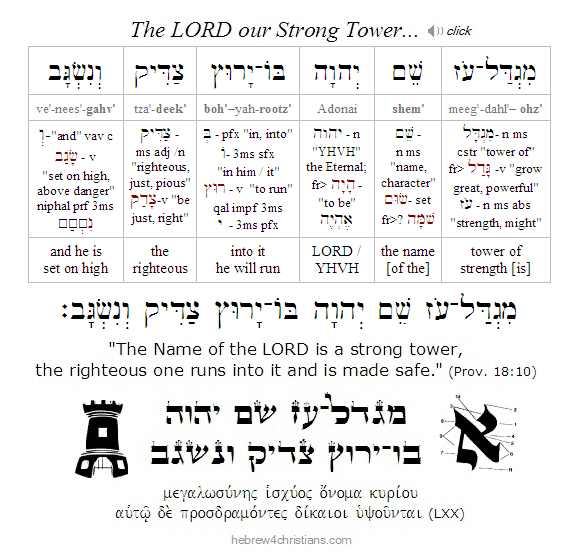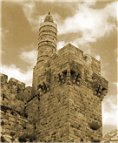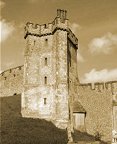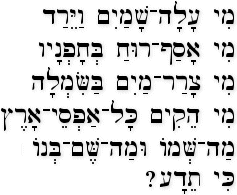|
The word "God" first appears in Genesis 1:1 (bereshit bara elohim ŌĆō "in the beginning God created..."), which denotes His creative power over the cosmos, but the personal name "YHVH" first appears in Genesis 2:4, where the LORD God (YHVH elohim) formed Adam from the dust of the ground and breathed into his nostrils "the breath of life" (nishmat chayim). According to some Rabbis, the name Elohim is therefore associated with God's role as Creator and Judge, whereas the Name YHVH is associated with his life-giving mercy and Salvation.
The Name of YHVH was further revealed when God commissioned Moses to be Israel's liberator from the bondage of Pharaoh's Egypt (see Exodus 3:14). When asked for His Name, God simply said, ehyeh asher ehyeh (rendered as "I am who I am" in the KJV), a phrase that comes from the Hebrew verb "to be" (hayah), and indicating a connection between YHVH and being itself. Indeed, according to traditional Judaism, YHVH is said to be derived from the phrase hayah hoveh yi'yeh, "He was, He is, He will be," indicating that God is before all our predications as the Source of all life.
In the rabbinic tradition, the sacred Name of YHVH is kadosh ŌĆō never to be said lightly ŌĆō and is replaced by the word "Adonai" (Lord) or "Hashem" (the Name). In fact, the Name YHVH was only to be uttered by the kohen gadol (High Priest) on the holiest day of the Jewish year (Yom Kippur) while standing in kodesh hakodashim (the Holy of Holies) of the Jewish Temple (Yoma 39b). A rabbinical midrash states that only seven kohanim (priests) now know how to pronounce this Name, a secret that is being handed down until the Third Temple is rebuilt in Jerusalem.
|



